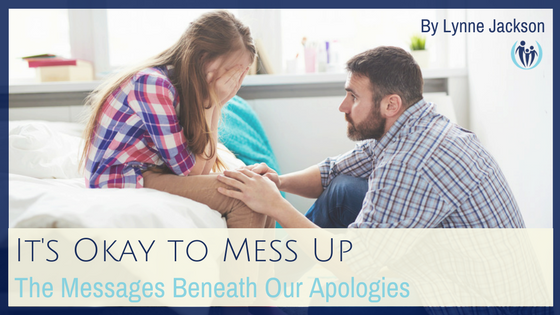
It’s OK to Mess Up

Catie came for coaching to address sibling conflict and disrespect. During one session she confessed, “I get so mad when one son hits the other, and I just blew it yesterday. I got so angry, and yelled, and it all spiraled downward after that. I apologized, but I felt horrible about myself.” She looked defeated as she described the interaction, so we dug deeper into what was underneath it all.
The Messages Beneath our Apologies:
I asked her, “What messages do your boys get when you apologize, but they see you looking ashamed and discouraged afterward?” She thought for a moment and we came up with some ideas together:
- Apologizing is hard to do and can make us feel even worse afterward.
- Asking for forgiveness doesn’t really solve anything. It’s just something we’re supposed to do.
- It’s a really big deal in this family to mess up!
Catie realized if her kids were believing these things, they wouldn’t learn to reconcile well.
A big reason why it’s so difficult to apologize:
Who wants to feel even crummier after you’re done?
Reframing what it means to apologize:
So then we discussed: What messages would you want your boys to get about apologizing?
- Apologizing is GOOD! It makes God’s grace and mercy real.
- Forgiveness in human relationship helps people feel better and closer.
- In this family it’s safe to mess up. There are always second chances – we’re growing and learning together.
Catie reported in a follow up email that she was taking small steps in bringing grace to their conflicts:
I am doing somewhat better with having a little more patience. If I do blow up, I apologize by saying, “Please forgive me” and I try to make it positive. Then at night when we pray, I remind my kids how great it is that God has forgiven me even though I messed up.
Catie is now showing her kids AND guiding them to value and receive God’s grace, to apologize sincerely, and to grow closer through conflict. You can too!
What are your parenting strengths?
You’ve got them. Knowing your strengths will help you become the best parent you can be. Knowing your parenting challenges is useful information too. Take our FREE ASSESSMENT.






